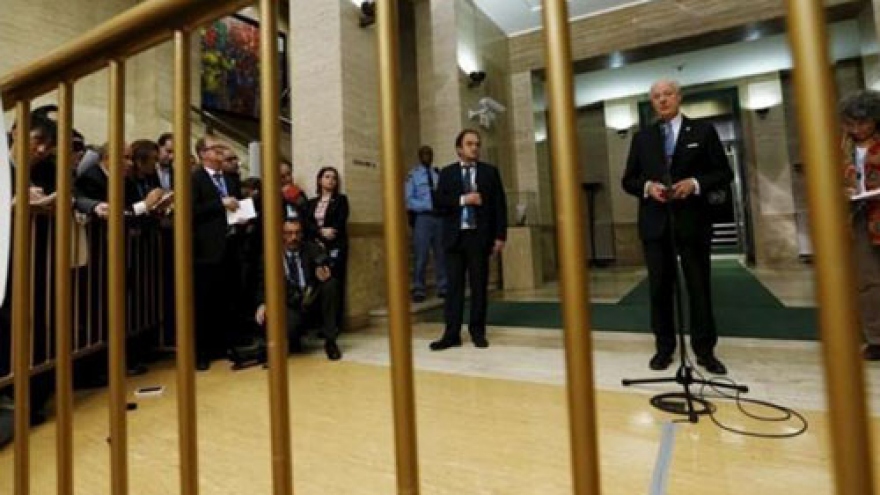UN halts Syria talks as government closes in on Aleppo
A United Nations envoy halted his attempts to conduct Syrian peace talks on February 3 after the army, backed by Russian air strikes, advanced against rebel forces north of Aleppo, choking opposition supply lines from Turkey to the city.
Another senior UN. official said the Russian escalation was the main reason for the suspension of the peace talks, which have made little progress since beginning earlier this week.
Staffan de Mistura announced a three-week pause in the Geneva talks, the first attempt to negotiate an end to Syria's war in two years, saying they needed immediate help from the rival sides' international backers, principally the United States and Russia.
"I have indicated from the first day that I won't talk for the sake of talking," the envoy, who has described the negotiations as Syria's last hope, told reporters.
 |
"I think the special envoy decided to suspend the talks because the (United Nations) did not want to be associated with the Russian escalation in Syria, which risks undermining the talks completely," the official said.
"The stepped up air strikes gain the government ground, but also aim at humiliating the opposition on the ground and in Geneva," he added.
Washington and Moscow's support for opposite sides in the five-year-old war, which has drawn in regional states, created millions of refugees and enabled the rise of Islamic State, means a local conflict has become an increasingly fraught global standoff.
De Mistura has said a ceasefire is essential but Russia refused to suspend its air strikes. They helped government forces end a three-and-a-half year siege of the Shi’ite towns of Nubul and al-Zahraa on February 3, a step towards recapturing all of Aleppo, Syria's biggest city before the war.
"I don't see why these air strikes should be stopped," Russian Foreign Minister Sergei Lavrov said, saying they were targeting al Qaeda-linked rebels.
Opposition delegation co-ordinator Riad Hijab said there would be no ceasefire until a transition without President Bashar al-Assad was in place.
Moscow accuses Washington, which is backing opponents of Assad, of supporting terrorists, while the US State Department said the air strikes around Aleppo focused mainly on Assad's foes rather than the Islamic State militants Russia says it is trying to defeat.
In a statement on February 3, US Secretary of State John Kerry called on the Syrian government and its supporters to halt bombardment of opposition-held areas, especially in Aleppo, and end sieges of civilians in accordance with a U.N. Security Council resolution.



